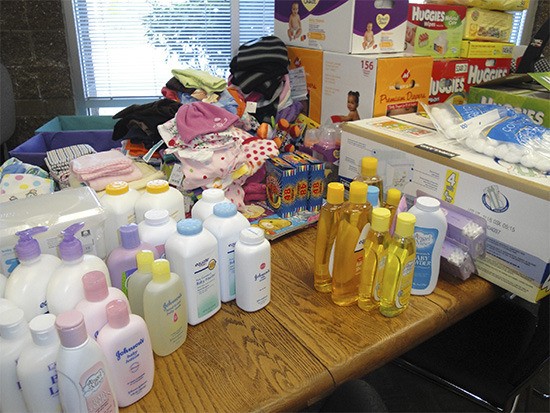Exodus House, a Pierce County nonprofit focused on rapid rehousing for families affect by domestic violence, celebrated it’s 20th anniversary this year.
Executive Director Joe O’Neil made the announcement to both the Sumner and Bonney Lake city councils during the month of October, which is Domestic Violence Awareness Month.
“We are able to help up to 50 families, at any given time, that are fleeing from domestic violence,” O’Neil said during his presentation. “We are the largest provider of rapid rehousing in Pierce County.”
O’Neil also announced that Exodus House’s annual Take The Plunge Against Domestic Violence will be postponed until next year because Lake Tapps is drained of water. The event raises awareness about domestic violence as people pledged to jump into Lake Tapps on a chilly autumn evening.
O’Neil said that Exodus House has gone through a lot of changes since it opened in 1994. The non-profit started by helping one single-parent family affected by domestic violence transition into permanent housing.
Exodus House would pay for room and board for the family while the parent spent their time working, or looking for work, to make enough money to eventually move into more permanent housing. Exodus held the lease for the transitional housing, so when families moved to more permanent housing, Exodus would help another move in.
O’Neil said that this was not a good model for helping these families succeed in their transition. “They weren’t building up any life skills, or get a good understanding of what it meant to be on their own,” he explained. “We were setting families up to fail.”
This transitional housing model, said O’Neil, had a success rate of only 60 percent – that is, six out of 10 families managed to successfully transition themselves into permanent housing.
Additionally, it took families upwards of a year to get to the point to where they were able to make the transition, said O’Neil. When O’Neil became the director in 2008, Exodus House started looking at different models for helping families. “We started looking at why we made families move,” he said. “Why can’t we just help them get into an apartment?”
Instead of making families move out of their transitional apartment into a permanent residence, Exodus House started negotiating with landlords to allow families to put a lease in their own name, and not in Exodus’. Instead of families moving out of transitional housing when the left the program, O’Neil said, Exodus House would back out of the families’ lives.
“Once they were successful, we didn’t want to disturb that,” said O’Neil. “We would simply back out and let the family stay there.”
To support these families, Exodus required them to only pay 30 percent of their income as rent to the landlord while Exodus covered the remaining portion. O’Neil said this was important because it helped families build a relationship with their landlord that would be strong even after the family left the Exodus House program.
“At that point, we started to have more success,” he said. “In no time at all, we were up to 70 percent. That is a huge thing when you are talking about families.”
Presently, Exodus House has a success rate of 80 percent, and the average family completes the program in seven months. Exodus House has also expanded to be able to support 50 families at a time, all across Pierce County and also in South King County.
O’Neil said that all the families that Exodus House helps fulfill three requirements; the parent is working or is willing to work, is either pregnant or has custody of a minor, and the family has been affected by domestic violence.
Additionally, all the families in the Exodus House program are single-parent families. While these families are most commonly single mothers, O’Neil said that many single fathers have also gone through the program.
O’Neil explained that domestic abuse can take many forms.
“We often assume domestic abuse is just physical, and that is one of the later developments,” O’Neil explained. “Domestic violence is any use of power or control over a loved one that is presented in a destructive way.”
Often, O’Neil said, this sort of behavior is learned by growing up in an abusive home.
“One of the things that we are learning is there are treatments,” O’Neil said. “Just like how we have changed our relationship with the families to improve our results, the same thing is happening with perpetrator treatment.”
While Exodus House only works with survivors of domestic violence, O’Neil said that programs for abusers are becoming more effective at helping perpetrators unlearn their behavior.
“If you can help the abuser learn new behaviors and integrate them back into a family in a healthy way, children are going to learn a healthy way to be,” O’Neil said. “And that can break the cycle.”


